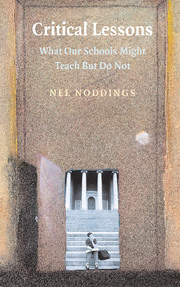1 - Learning and Self-Understanding
Published online by Cambridge University Press: 05 June 2012
Summary
What brains they must have in Christminster and the great schools, he presently thought, to learn words one by one up to tens of thousands!
Thomas Hardy, Jude the ObscurePossibly no goal of education is more important – or more neglected – than self-understanding. Socrates advised us, “Know thyself,” and he claimed that the unexamined life is not worth living. We may feel that Socrates went too far on this, thereby dismissing the lives of millions who have not had the opportunity to examine their lives. But when we claim to educate, we must take Socrates seriously. Unexamined lives may well be valuable and worth living, but an education that does not invite such examination may not be worthy of the label education.
In an important sense, this entire book is about self-understanding and an examination of how external and internal forces affect out lives. We need to ask not only what we believe but why we believe it. Similarly, we need to ask, What do I feel? Why? What am I doing? Why? And even, What am I saying? And, again, why?
The most fundamental expectation of schooling is that students will learn. If we want them to learn to use their minds well, it is reasonable to help them understand how their minds function, how and why they learn. What motivates us to learn? What habits are helpful? Why do I remember some things and forget so many others?
- Type
- Chapter
- Information
- Critical LessonsWhat our Schools Should Teach, pp. 10 - 35Publisher: Cambridge University PressPrint publication year: 2006



